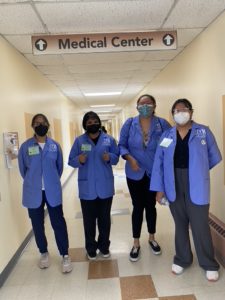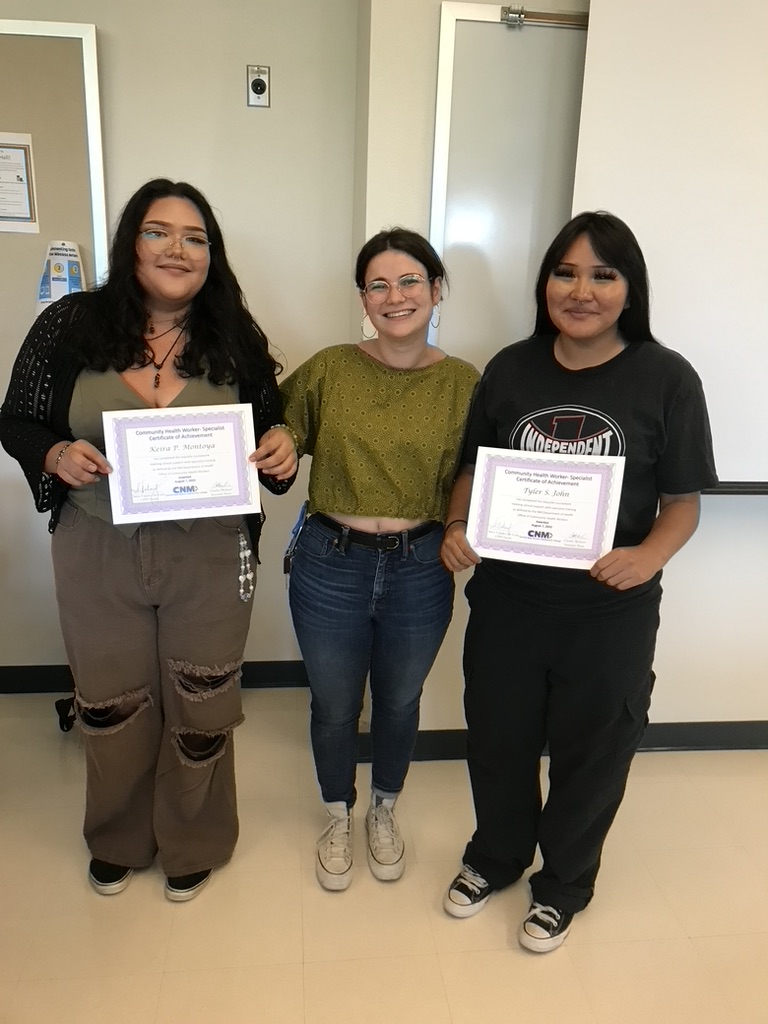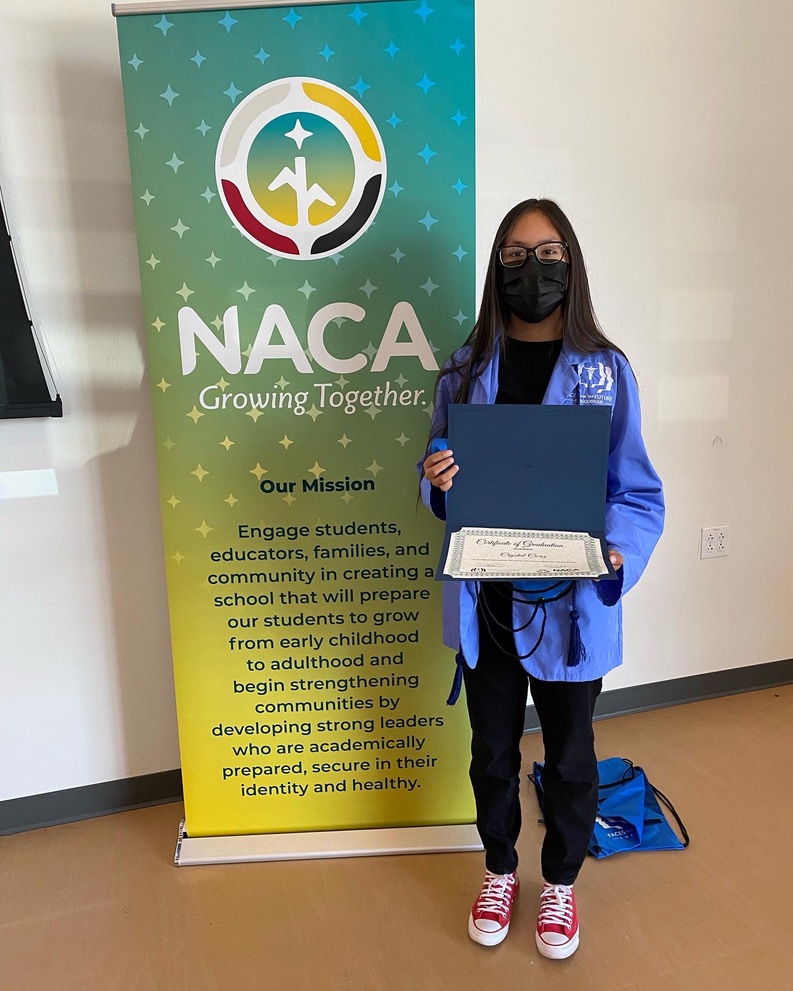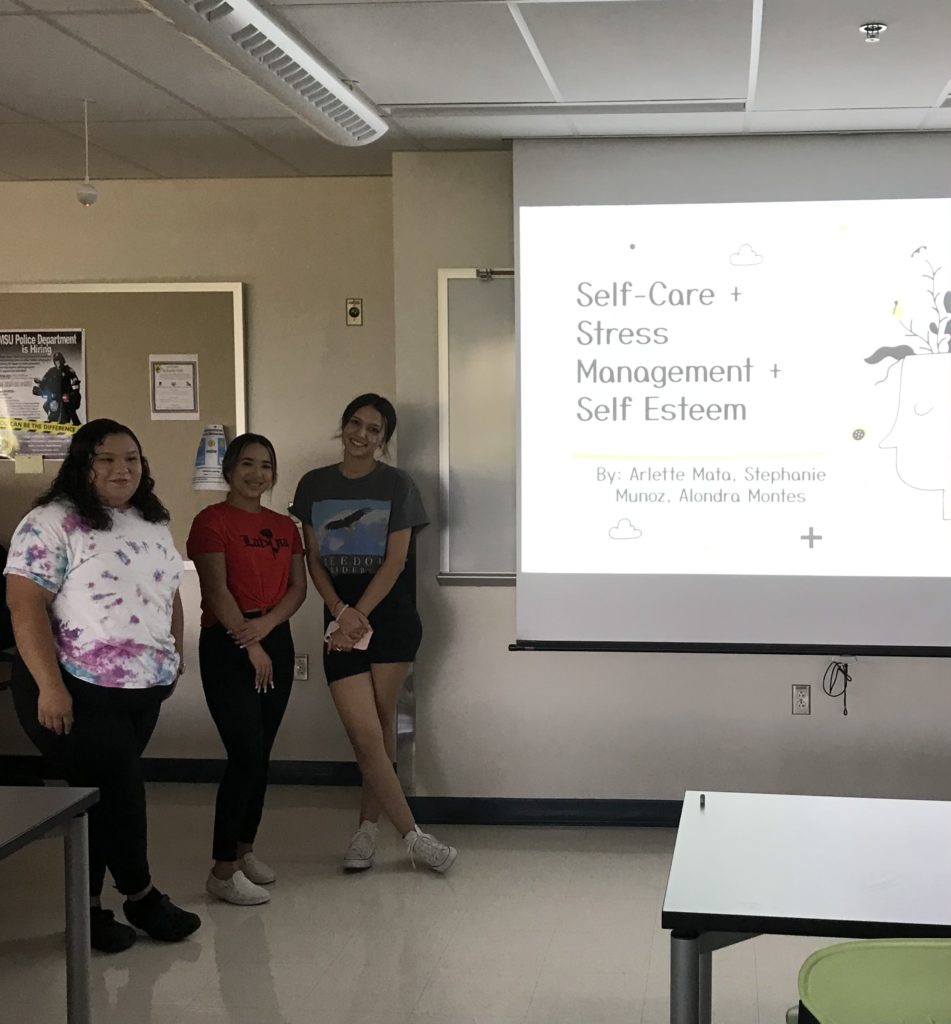 Community Health Workers (CHWS) are a vital and growing part of New Mexico’s healthcare workforce. CHWS work alongside clinical care providers to offer social support and resources to patients. CHWS also serve as health educators and leaders in their communities. Throughout the state CHWS are employed by hospitals and clinics as well as agencies focused on housing, immigration, legal aid, and domestic violence.
Community Health Workers (CHWS) are a vital and growing part of New Mexico’s healthcare workforce. CHWS work alongside clinical care providers to offer social support and resources to patients. CHWS also serve as health educators and leaders in their communities. Throughout the state CHWS are employed by hospitals and clinics as well as agencies focused on housing, immigration, legal aid, and domestic violence.
This summer, fifteen students in the Albuquerque Public Health Youth Corps completed a ten credit Community Health Worker Certificate program at Central New Mexico Community College. To obtain this certification students needed to master clinical skills such as taking a blood glucose level, taking a manual blood pressure and basic life support CPR. Students also practiced their interpersonal skills and learned how to utilize motivational interviewing to help clients move towards healthier behaviors. In addition to the three didactic classes, students also completed 40 hours of service at practicum sites throughout the community, including at the Rio Grande Food Project and the Roadrunner Food Bank.
Once students turn 18 they will be able to apply for a state certification in Community Health Work, and begin to work in their communities. Many FACES students plan to work as CHWS during their college education to gain experience in the field and support themselves financially. Unlike other entry level positions, CHWs make five dollars more than the New Mexico minimum wage per hour.
During the Covid-19 pandemic the need for community health workers increased in New Mexico. As the state continues to manage the public health crisis, programs such as CNM’s CHW program are looking to recruit students interested in the profession. The FACES students are uniquely qualified to serve as leaders amongst their peer group and in their communities. We look forward to seeing how each of them uses their certification to better themselves and their community.



